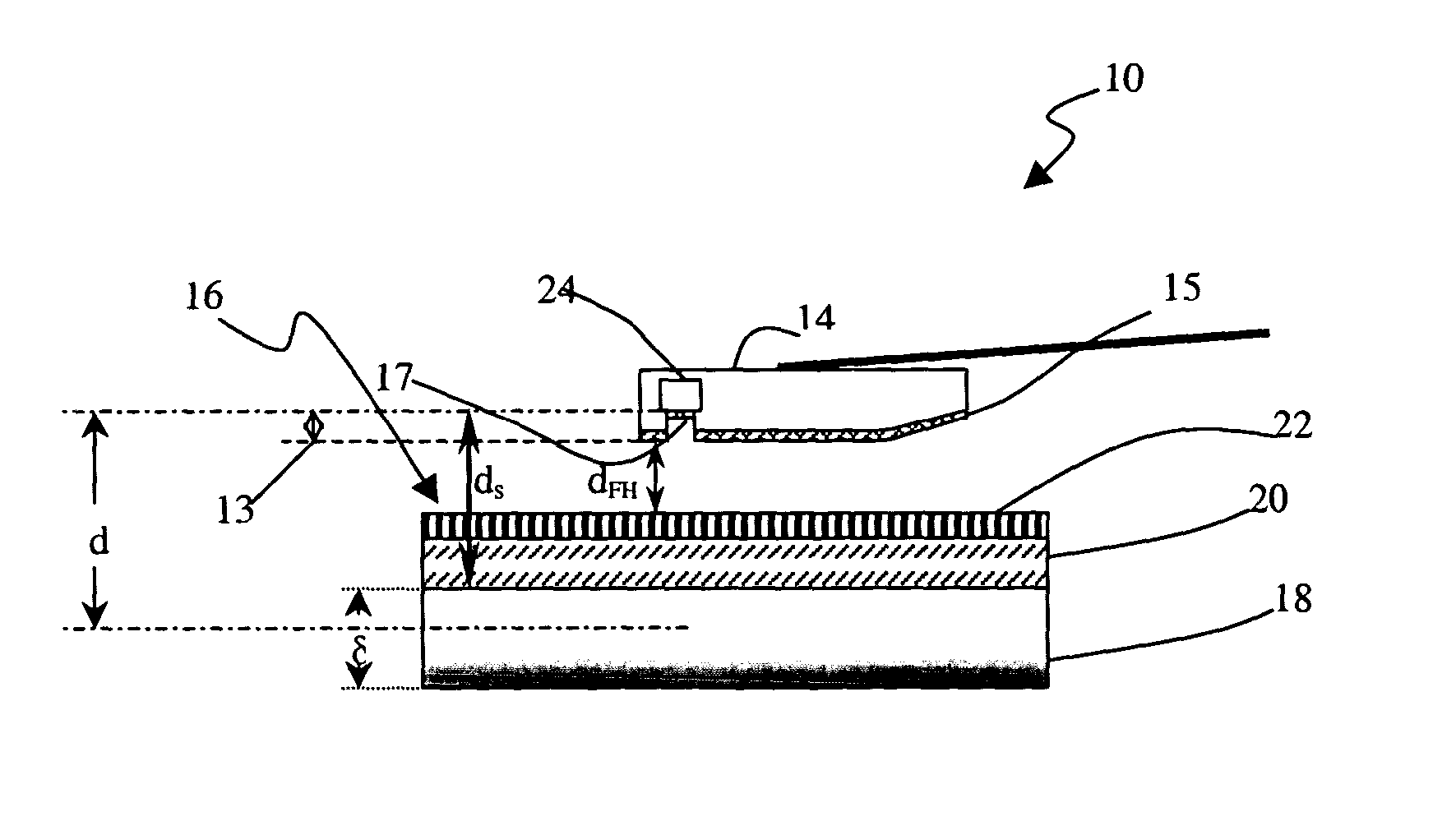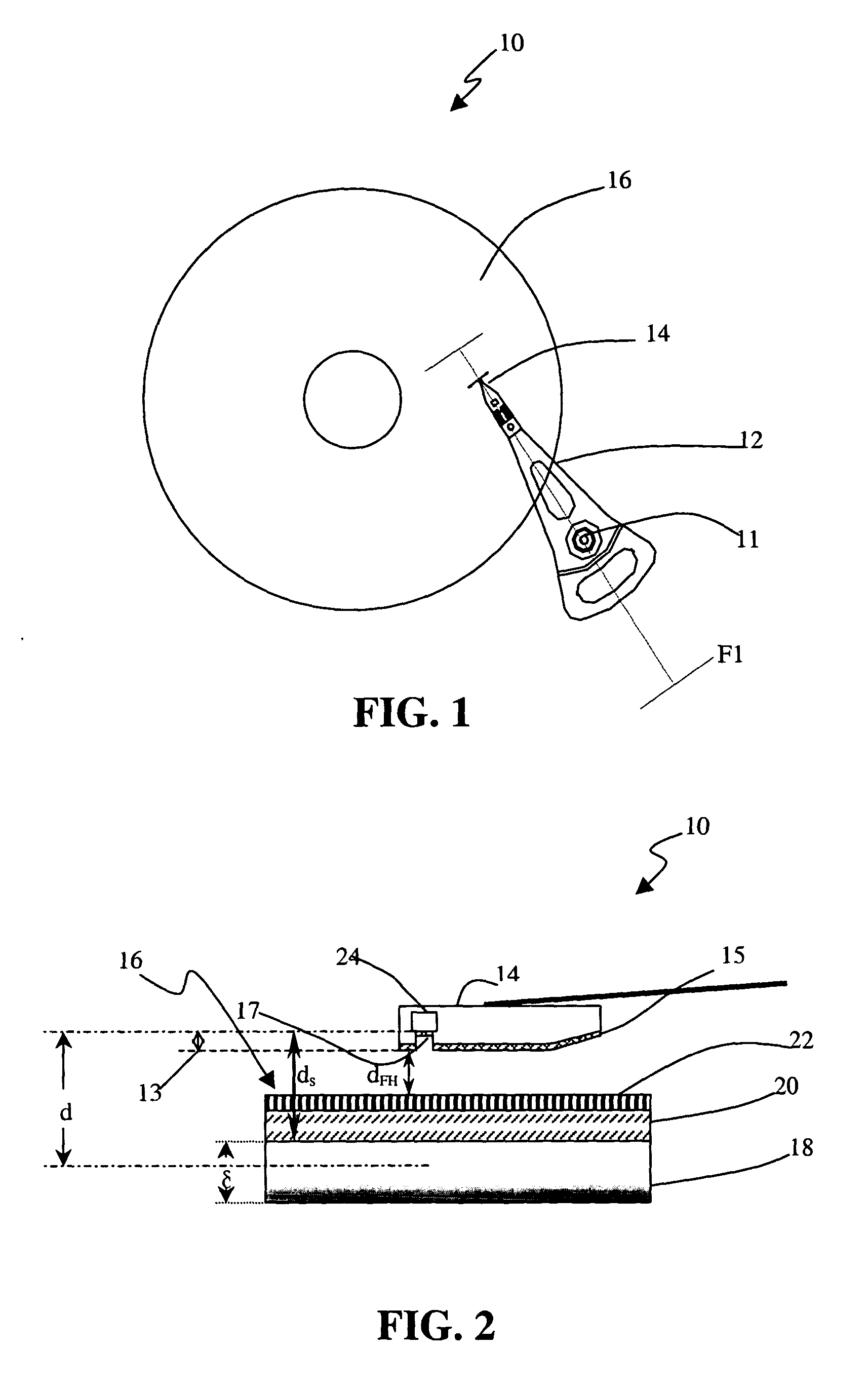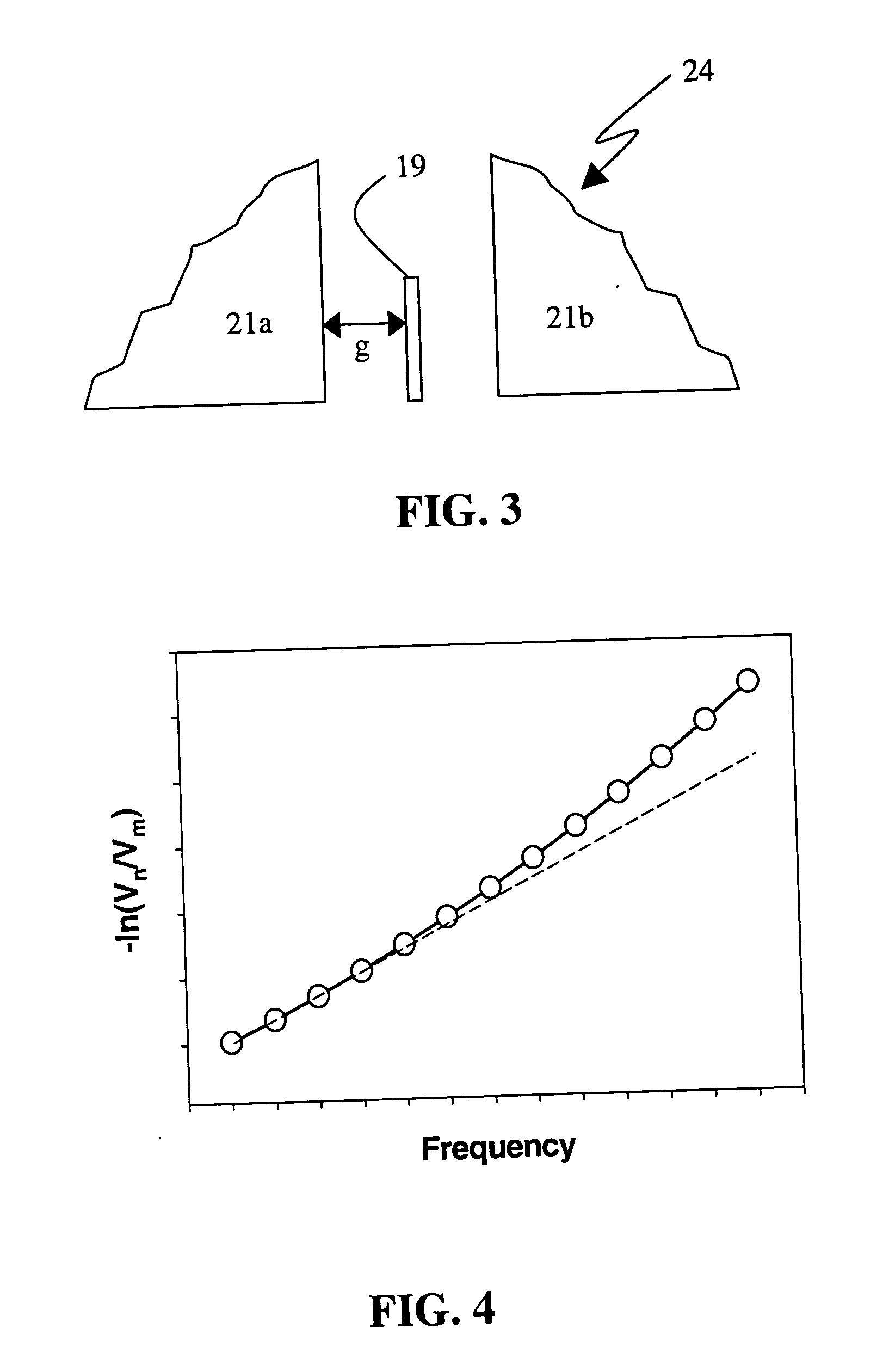Method and implementation of in-situ absolute head medium spacing measurement
- Summary
- Abstract
- Description
- Claims
- Application Information
AI Technical Summary
Benefits of technology
Problems solved by technology
Method used
Image
Examples
example
The following is an example to illustrate the present invention. A code pattern (111100) is pre-encoded on a magnetic disk surface. The preferred lower order harmonic and higher order harmonic are the first and third order harmonics, respectively, for this code pattern (i.e. n=3 and m=1). According to FIG. 11, this code is detected as a readback signal through the read head, which is then passed through filters for isolating the first and third harmonics. The ratio of the isolated harmonic amplitudes is calculated after the natural logarithms of the harmonic signals are tabulated in an algorithm in a digital signal processor (DSP) and the frequencies at which of these harmonics occur are registered. The gap loss-term and the thickness loss-term are removed by applying Equations (10) to (12) to establish the linear relationship of the logarithmic ratio of the spacing loss-term versus testing frequency and determining the gradient of the linear relationship to obtain the value of a. ...
PUM
 Login to View More
Login to View More Abstract
Description
Claims
Application Information
 Login to View More
Login to View More - R&D
- Intellectual Property
- Life Sciences
- Materials
- Tech Scout
- Unparalleled Data Quality
- Higher Quality Content
- 60% Fewer Hallucinations
Browse by: Latest US Patents, China's latest patents, Technical Efficacy Thesaurus, Application Domain, Technology Topic, Popular Technical Reports.
© 2025 PatSnap. All rights reserved.Legal|Privacy policy|Modern Slavery Act Transparency Statement|Sitemap|About US| Contact US: help@patsnap.com



